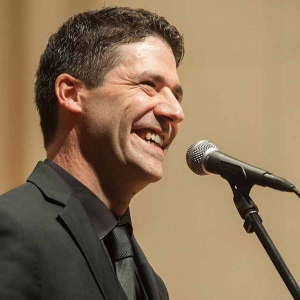Helping Students Reach the Mountaintop
Jul 2019
I believe one of the reasons we become teachers is so that we can help our students reach their full potential. As we gain experience and develop as educators, we learn new methods and strategies to help our students gain success. However, we all have felt disappointment when a student gives up before reaching the top of the mountain.
Why, in response to failure or challenge, do some students choose the easiest path or quit, and others, excited by challenge, persevere and continue to develop? I recently discovered an answer and groundbreaking solutions to this question. I believe that we can learn from this information to create music programs where all students will want to thrive and achieve excellence.
Carol S. Dweck, Lewis and Virginia Eaton Professor of Psychology at Stanford University and author of Mindset: The New Psychology of Success, demonstrates that it is our own belief, or mindset, that is largely responsible for whether or not we reach our potential.
Adults and children can be grouped into two categories: those with a fixed mindset and those with a growth mindset. Someone with a fixed mindset believes that intelligence, talent, and ability are fixed or static. If you are talented, things come easily to you; if you have to put effort into an endeavor, you must not be talented.
Those with a growth mindset believe that intelligence, talent, and ability can be developed through process, strategies, time, and effort. Growth-mindset students embrace challenges and are excited by the process of learning, whereas fixed-mindset students shy away from challenge because "failure" could expose them as not being smart or talented.
The good news is that mindsets can be changed! It turns out that how we give feedback to our students helps to shape whether they develop fixed or growth mindsets. Focusing on self-esteem, ability praise --- "You're so talented," "You learned that so quickly," "My, you are so smart" ---- causes students to believe that their self-worth is determined by how talented they are, how easily they can complete a task, and how intelligent they are. This type of praise makes students feel good about themselves momentarily, but when they encounter a challenging task that stretches them, they tend to shy away from it because their self-worth has become dependent on being able to do tasks easily. They avoid risks because of the fear of failure. Judgmental atmospheres create students with fixed mindsets.
On the other hand, process praise ---- "I appreciate the effort you put into learning that phrase," "Through your perseverance and strategies you are continuing to improve," "Your attention to detail is improving" ----places the positive focus on diligence, determination, and effort. While setbacks can still be discouraging to students with a growth mindset, these students tend to view challenges as an opportunity from which to learn and grow. Encouraging but honest atmospheres create students with growth mindsets.
Simply adding the word yet to the end of a sentence changes the mindset of a phrase. For example: "You are not performing that phrase to the best of your abilities yet." By adding yet or even not yet to the feedback we give students, we imply our expectation that students will be able to accomplish the task with the appropriate strategies, effort, and time.
When we approach teaching and learning with a growth mindset, we remove the ceiling on our students' abilities and empower our students to reach for the sky.

